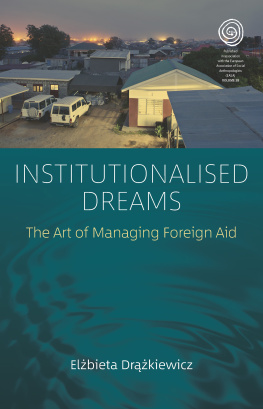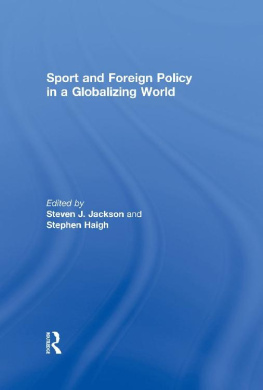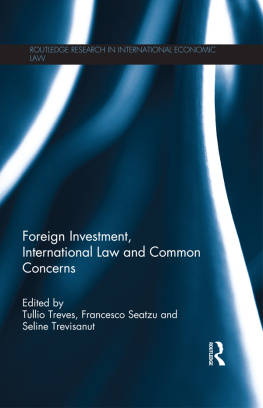INSTITUTIONALISED DREAMS
EASA Series
Published in Association with the European Association of Social Anthropologists (EASA)
Series Editor: Aleksandar Bokovi, University of Belgrade
Social anthropology in Europe is growing, and the variety of work being done is expanding. This series is intended to present the best of the work produced by members of the EASA, both in monographs and in edited collections. The studies in this series describe societies, processes and institutions around the world and are intended for both scholarly and student readership.
Recent volumes:
38. INSTITUTIONALISED DREAMS
The Art of Managing Foreign Aid
Elbieta Drkiewicz
37. NON-HUMANS IN AMERINDIAN SOUTH AMERICA
Ethnographies of Indigenous Cosmologies, Rituals and Songs
Edited by Juan Javier Rivera Anda
36. ECONOMY, CRIME AND WRONG IN A NEOLIBERAL ERA
Edited by James G. Carrier
35. BEING-HERE
Placemaking in a World of Movement
Annika Lems
34. EXPERIMENTAL COLLABORATIONS
Ethnography through Fieldwork Devices
Edited by Adolfo Estalella and Toms Snchez Criado
33. BACK TO THE POSTINDUSTRIAL FUTURE
An Ethnography of Germanys Fastest-Shrinking City
Felix Ringel
32. MESSY EUROPE
Crisis, Race and Nation-State in a Postcolonial World
Edited by Kristn Loftsdttir, Andrea L. Smith and Brigitte Hipfl
31. MANAGING AMBIGUITY
How Clientelism, Citizenship, and Power Shape Personhood in Bosnia and Herzegovina
arna Brkovi
30. THE GOOD HOLIDAY
Development, Tourism and the Politics of Benevolence in Mozambique
Joo Afonso Baptista
For a full volume listing, please see the series page on our website:https://www.berghahnbooks.com/series/easa
INSTITUTIONALISED DREAMS
The Art of Managing Foreign Aid
Elbieta Drkiewicz
First published in 2020 by
Berghahn Books
www.berghahnbooks.com
2020 Elbieta Drkiewicz
All rights reserved. Except for the quotation of short passages for the purposes of criticism and review, no part of this book may be reproduced in any form or by any means, electronic or mechanical, including photocopying, recording, or any information storage and retrieval system now known or to be invented, without written permission of the publisher.
Library of Congress Cataloging-in-Publication Data
A C.I.P. cataloging record is available from the Library of Congress
Library of Congress Cataloging in Publication Control Number: 2019042425
British Library Cataloguing in Publication Data
A catalogue record for this book is available from the British Library
ISBN 978-1-78920-553-4 hardback
ISBN 978-1-78920-554-1 ebook
For Ewa, Ola and Piotr
Contents
Acknowledgements
While working on this book I incurred many unpayable debts. The biggest is to my family, especially Piotr, Ewa and Ola whom I have dragged on to my Tour de Academia and who have never complained about it, even though they probably should. I am also grateful to my mum for her unconditional support, to my dad for showing me that the world is bigger than our neighbourhood, and to my brother for continuing to challenge my political and social views. Special thanks go to my grandfather. If he had lived to read this book he would probably be the harshest critic of my work. I will never forget the amazing encouragement he gave me and the one-of-a-kind mentoring he offered me at the dinner table, always at 2pm sharp. Here, a special thanks also goes to my grandmother who had to listen to our arguments, and who always knew how to help me out when I was losing badly in those debates. I also owe more than I could express to the Messing family whose generosity and hospitality has made my academic migrations more bearable. Particular thanks are due to Paul, without whom I would never have achieved so much, and who has been an amazing support to my family and I for as long as I can remember.
Of course this book would not be possible without those who welcomed me into their lives, and allowed me to write about them. Among them, special thanks go to the people with whom I conducted my fieldwork, who let me into their offices and sometimes even into their more private lives. In particular, I would like to thank Ewa Demczyk, Diana Jastrzbska, Marta Kucza, Agnieszka Szawara, Erwin Bartis, Kasia Kot, Katarzyna Zakroczymska, Krzysztof Stanowski, Joanna Szewczak, Ola Kielanowska, Iza Wilczyska, Kamila Wojda, Ola Antonowicz-Cyglicka, Agnieszka Kudlik and Janina Ochojska. Many thanks also to Atong Kuol Manyang, Abraham Gieth, Goi Gatluak Reth and Mayai without whose friendship my fieldwork would not have been the same.
This work would also not have been possible without the support of fellow academics. I am particularly grateful to Patty Gray, who pushed me during my Marie Curie Fellowship to publish this book, but also Sian Lazar, Nikolai Ssorin-Chaikov, Marilyn Strathern, Martin Walsh, Emma Mawdsley and Loraine Gelsthorpe for their guidance during my PhD studies in Cambridge. Special thanks to my colleagues, Megan Sim, Jessica Johnson, Emily Jordan, Felix Ringel, Alice Wilson, Micha Murawski and Amy Rowe for the feedback on my work and collegial support at the time of my PhD. I am also grateful to Pawe Lewicki, Bogumia Lisocka-Jaegermann, Katarzyna Czplicka, Jan Szczycinski, Simon Lightfoot, Tom Profant, Ondej Hork-Hluch and Balzs Szent-Ivnyi for our discussions of the New Donors phenomena which have greatly inspired this book. I am also particularly grateful to the members of the Department of Anthropology at the Maynooth University, Abdullahi El-Tom, Mark Maguire, Pauline Garvey, Thomas Strong, Steve Colman, Jamie A. Saris, Chandana Mathur, David Prendergast, Samas Sochin, Denise Erdmann and Jacqui Mullally, for their encouragement and for creating a wonderful work environment.
Last but not least, I would like to thank the Cambridge Gates Trust, Pembroke College and the Ling-Roth Trust, whose financial support made this book possible. Parts of this book were also based on the research financed by DFID and the European Research Commission (Marie Curie Intra European Fellowship). The financial support for the editing of this book was provided by Maynooth University.
Introduction
It was a beautiful summers day as I got out of the car in the middle of the forest. The sun was shining through the tall pine trees. In the distance downhill from us I could see the shimmering lake. I was excited about swimming, picking berries and mushrooms, having a picnic with my parents and climbing trees with my older brother. Then I spotted something unusual. In this empty car park, next to our Fiat 126p there was another car. It seemed much larger, fancier, and it had different plates. It was not from here. Soon I saw a couple, a man and a woman, coming towards me. The moment they saw me they became strangely excited, smiling eagerly, waving their hands in a come here gesture. I had no idea who they were. I had never seen them before. They hurried towards the car and opened the boot. I froze, uncertain as to what was going on. The man, rushed by the lady, pulled out two bags of sweets. They came towards me, and stroking me on my head, began pushing sweets into my hands. I could not move. It was exciting and scary at the same time.














